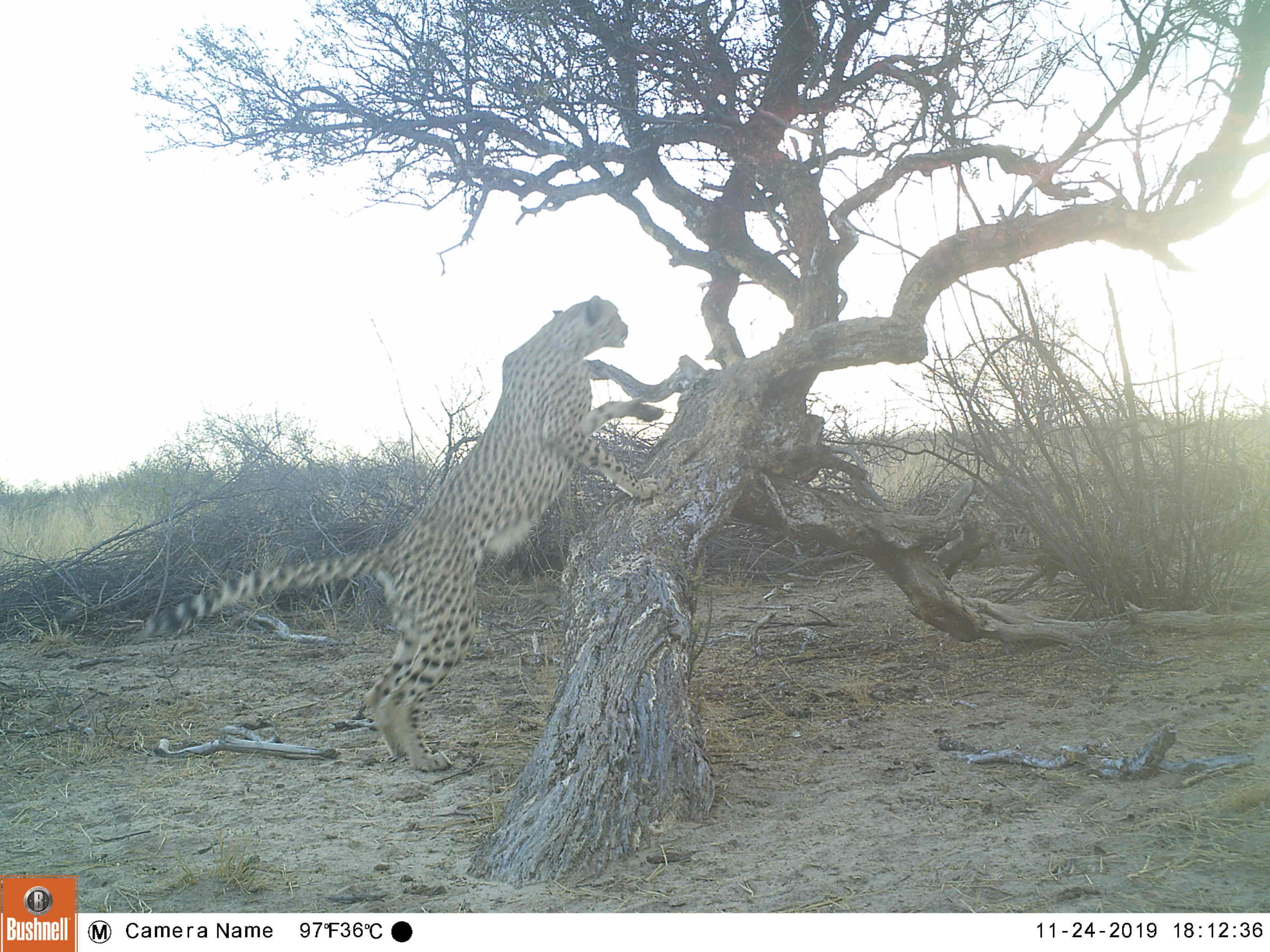©Michelle Kral, Cheetah Conservation Botswana
Michelle Kral, PhD student of Wildlife Ecology & Conservation
‘I am located in a small safari village called Maun and am coordinating the research at the Cheetah Conservation Botswana. I work in the Kalahari desert, where there is much livestock farming, but also frequent incidents of conflict between humans and predators. With this project, we hope to learn more about the cheetah’s behaviour, to enable a better cohabitation between humans and animals.

The Kalahari desert is very remote and sparsely populated, so it was one of the last places on Earth to report an infection. There was a lockdown in effect in Botswana from 4 April to 21 May. No-one was allowed outdoors, so I could not check my camera traps. I focussed on literature research and planning research for next year. Following seven weeks of staying indoors, I finally started again two weeks ago. Everything seems fairly normal here, although a face-mask is compulsory, as are temperature checks upon entering shops or office buildings.
A face-mask is compulsory, as are temperature checks upon entering shops or office buildings
Michelle Kral, PhD Wildlife Ecology
Much of my research is carried out on private properties, on large cattle farms and private game ranches. Now that the lockdown is over, people are pleased to have me return to do research for them. The next three months, I hope to ‘catch’ many cheetahs and predators in my camera traps!’
Read part 1 here:
‘There were forty of us in bunk beds in a dormitory’’
